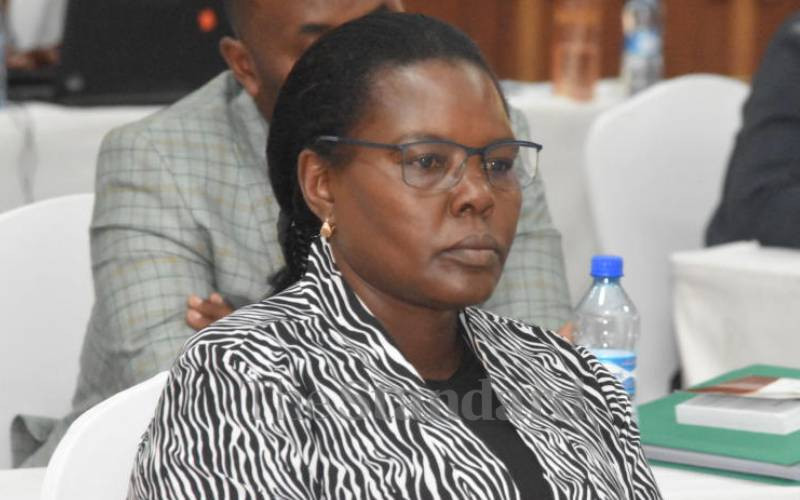×
The Standard e-Paper
Smart Minds Choose Us

The last of "Cherera four" electoral commissioners fell of her own failure to face head-on damning evidence adduced against her by credible witnesses, the tribunal report recommending her sack said.
Irene Cherop Masit avoided confronting the elephant in the room- testimony that she was a willing participant in a scheme to overturn the will of Kenyan voters- and instead chose to question the credibility of witnesses, partiality of tribunal members, the jurisdiction of the tribunal among other points of law.